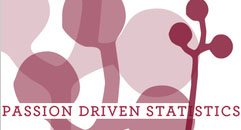Wesleyan to Offer Free Online Courses through Coursera Partnership

Wesleyan announced on Sept. 19 a new partnership with Coursera, a company offering the public access to free online courses from top colleges and universities. Wesleyan was one of 17 new institutions to sign on this month, and is the very first liberal arts institution focused on the undergraduate experience to do so. Other partners among Coursera’s 33 participants include Stanford, Princeton and Brown; public research universities such as the University of Florida; and specialized schools such as Berklee College of Music.
Coursera was founded by two Stanford University professors seeking to expand educational opportunities through technology. Since its launch in January, Coursera has enrolled more than 1.3 million students, and now offers more than 200 MOOCs—or “massive open online courses”—some of which attract tens of thousands of students.
“As a school dedicated to teaching and scholarship, Wesleyan is pleased to be joining Coursera’s impressive initiative to provide intellectual challenge and reward to anyone with the desire to learn,” says President Michael S. Roth. “Liberal education cultivates freedom through lifelong learning, and American universities now have a great, unprecedented opportunity to promote freedom worldwide by sharing great teaching.”
Students move through Coursera classes at their own pace, watch videos of lectures by world-class professors, complete online interactive exercises and test understanding of concepts. Classes span the humanities, social sciences, math, science, medicine, business, music, computer science and more.
The recent announcement of Coursera’s expansion drew attention from many national news outlets, including The New York Times and The Chronicle of Higher Education.
In an interview with The Hartford Courant, Roth explained, “This is really about taking the education available to a few students at selective schools and making a version of it, not the same thing, but making a version of it available to millions.”
In a post on his blog, Roth elaborated on the thinking behind Wesleyan’s partnership with Coursera:
“The idea that Wesleyan will be offering free, massive online classes will strike some as paradoxical. We are a small university at which almost three quarters of the courses are taught in an interactive, seminar style. How is that related to online learning? In important respects the classes offered through Coursera are very different from the ones we teach here in Middletown. Our residential liberal arts education depends on the ongoing interaction of students with one another and with faculty. MOOCs encourage interaction of a different sort: through social media and chat rooms.
“Nonetheless, we want to understand better how students learn in these contexts, precisely because they are so different from our own. And we think it is simply a good thing to share versions of our classes with the wider world. The Wes educational experience does not scale up — but we can make available online adaptations of our classes so that those with a desire to learn have access to some of what we have to teach.”

Alumni, parents and anyone else who wants a taste of the Wesleyan educational experience can visit coursera.org/Wesleyan to view current course offerings. Roth himself will offer a course, “The Modern and the Postmodern,” beginning Feb. 1, 2013. Other courses to be offered initially by Wesleyan professors include “Property and Liability: An Introduction to Law and Economics,” by Richard Adelstein, the Woodhouse/Sysco Professor of Economics, chair of economics; “Passion Driven Statistics,” by Lisa Dierker, professor of psychology; “The Ancient Greeks,” by Andrew Szegedy-Maszak, the Jane A. Seney Professor of Greek, professor of classical studies; “The Language of Hollywood: Storytelling, Sound and Color,” by Scott Higgins, associate professor of film studies; and “Social Psychology,” by Scott Plous, professor of psychology. The courses range from five to seven weeks in length.
After one day of posting, 10,000 individuals had signed up to take Wesleyan Coursera courses.

